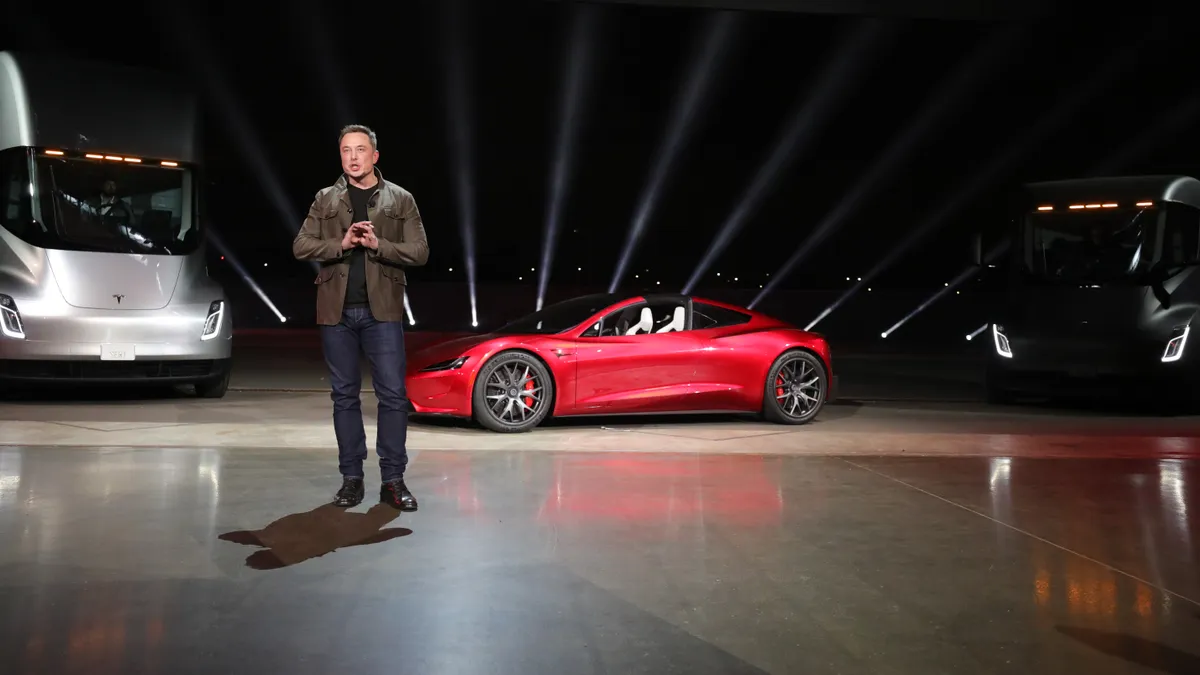Dive Brief:
- The U.S. Trade Representative (USTR) has denied tariff exemptions from Tesla, GM, and Uber, according to Reuters which cited government documents for the finding. The USTR allows for tariff exemptions if companies can show products can't be acquired from another source.
- Telsa applied for exemptions on key technological components for its electric vehicles including it's "brain" — the car's main autopilot computer. GM filed for over 50 exemptions ranging from components for push-button ignition to battery cables. Uber sought exemptions for its electric scooter fleets. In total, Reuters reports that the USTR has received over 13,000 exemption requests since the trade war began and has rejected 7,000 of them.
- In the case of Tesla, GM and Uber's denials, the USTR claimed that the technologies they wished to exempt from tariffs were material to Beijing's "Made in China 2025" initiative or other critical industrial programs. "Made in China 2025" refers to a recently launched Chinese government initiative aimed at leveraging government subsidies and nationalized manufacturing capabilities to increase its dominance in high-tech manufacturing across a range of industries.
Dive Insight:
Tesla, GM and Uber are not the only companies in the industry denied exemptions. In May, Fiat Chrysler, Nissan and Volvo (among other major auto brands) applied for tariff exemptions citing profitability concerns and were rejected on similar grounds.
Now fully exposed to the 25% tariffs on affected components, automakers are preparing for lost profits and consumer price hikes. In its USTR filing, Fiat Chrysler said exposure to the 25% duties would force it to "reduce its margins, pass the additional cost onto consumers or some combination of the two."
Likewise, Tesla stated in its application, "choosing any other supplier [for its autopilot computer] would have delayed the [Model 3] program by 18 months with clean room setup, line validation and staff training."
Despite the impact on automakers in the U.S., the Trump Administration maintains the tariffs are necessary to preserve American intellectual property from "persistent theft" by the Chinese.
A Drewry report released before the rate on the third list of tariffs increased last month, stated the 25% figure would reduce vehicle imports from both Asia and Europe by 11% in 2020.














